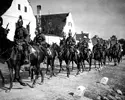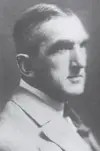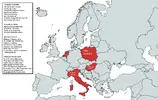Had a wash house in the tenements were I was born.
They had baths in them as well.
A lot of the terrace houses didn't have a bathroom, outside toilet ect, some had no hot water.
Some of them looked down on us , but at least we had a inside toilet and bath and hot water.
The older kids used to get us up on the roof to rob the lead around the windows, we were only about 4 yrs old and got paid in sweets for are venture into crime.
They knew the cops couldn't do anything to you accept tell you off and get your parents to give you a hiding.
They had baths in them as well.
A lot of the terrace houses didn't have a bathroom, outside toilet ect, some had no hot water.
Some of them looked down on us , but at least we had a inside toilet and bath and hot water.
The older kids used to get us up on the roof to rob the lead around the windows, we were only about 4 yrs old and got paid in sweets for are venture into crime.
They knew the cops couldn't do anything to you accept tell you off and get your parents to give you a hiding.













